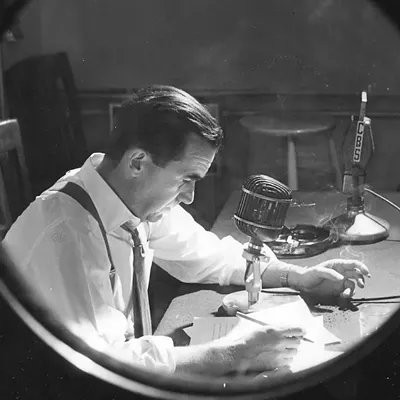
Journalism is a values-driven profession. Yet in these difficult days, the nature of those values is too often misunderstood or the source of baffling confusions, even among journalists.
The other great professions have oaths and vows that embody each profession’s values.
Doctors have their Hippocratic Oath with roots in the ancient world. First responders who work as public servants take an oath on entering service that requires them to uphold the laws of the land and protect the citizenry. Same for the military.
In the legal profession, the bar establishes rules and regulations that embody values and regulate behavior.
Even those called to the ministry take an oath.
But there is no oath for journalists, no legal obligation beyond the obligations required of any citizen. There is no licensing authority, no system to establish standardized rules and procedures.
There are codes of ethics, of course. But they are numerous and varied and are no more than behavioral suggestions without force beyond general acceptance.
The issue of journalistic values comes to mind now because of the controversy surrounding author Bob Woodward’s new book on the Trump administration, Rage. As is now well known, Woodward taped several interviews with the president through the winter and spring. During some of those conversations, the president admitted he was downplaying the coronavirus threat even though he knew as early as January that the virus posed a significant threat to national security and public health. Essentially, he admitted lying to the public.
Woodward had that information as early as mid-March just as the pandemic blew up. Should he have released his tapes at that point or was he justified in holding them back until his book’s publication this month?
That question has sparked intense debate, not just in the public but also within the profession. There is no consensus.
I was a reporter and editor for nearly 40 years before spending the last 10 teaching journalism — and journalism ethics — at the University of Idaho. In my newsrooms, I attempted to establish operating values that formed the framework for the editorial decisions we would make. And I have attempted, not always successfully, to live up to the ethical standards embodied in the profession’s codes.
And still I wrestle with Woodward’s actions. My first blush response was to support his decision to hold back the taped interviews until the publication of his book.
Yes, he is a journalist, but he has not been a beat reporter for decades. He is an author whose books rely on deeply sourced and documented interviews. His books are on-the-fly histories not intended for daily news reporting.
Yes, as he has said, it took time to verify the accuracy of things the president told him. Trump makes things up — there is no meaningful dispute on that point. Woodward has said it was mid-May before he was able to confirm many of the details shared by the president. Verification and accuracy are among the most important professional values.
Yes, it is improbable, to put it mildly, that the release of those interviews in March would have changed the president’s response to the pandemic or public-health policy or the attitudes of his committed supporters. Those who think otherwise are engaged in a political form of magical thinking. Having written extensively about Trump in the past, Woodward understood this better than anyone.
And still I am troubled. And so, I waffle back and forth.
While there is no universally recognized code of ethics for journalists, there is the Society of Professional Journalists code, the mother code that dates back to the 1920s and which is the foundation for all of the media codes that followed.
The SPJ code is built around four basic principles, each the subject of considerable elaboration.
• Seek truth and report it.
• Minimize harm.
• Act independently.
• Be accountable, transparent.
Even with elaboration, those principles are subject to considerable interpretation.
Reviewing Woodward’s actions, it seems to me he essentially met three of the four standards — truth, independence and accountability.
But there is that troubling admonition, “minimize harm.” Ethical practice requires journalists to default to the public interest and do everything in their power to minimize public harm.
In my newsrooms and in my classes, I emphasized this value: “We tell the public what we know when we know it.” Withholding information, even for reasons that seem good in the moment, poses a risk to the public, increasing potential harm. Furthermore, holding back information can seriously damage the journalist’s credibility with an already-skeptical populace when finally revealed.
We are seeing both results play out.
It can be argued now — as we near 200,000 COVID deaths in the U.S. — that holding back the damning information caused harm. Perhaps, Woodward’s tapes could have altered the public health response and policy, thereby saving lives. Of course, the president shoulders the greater blame. His oath obligates him to act in response to a deadly threat, not deny the threat’s existence.
Regardless, Woodward’s credibility is now open to challenge, giving the president and his acolytes an opening to attack the journalist’s motivations.
So, I go back and forth.
Until I get back to this: “We tell the public what we know when we know it.”
Woodward should have told. ♦
Steven A. Smith is a former editor of the Spokesman-Review. Prior to joining the S-R, Smith was editor for two years at the Statesman Journal, a Gannett newspaper in Salem, Oregon, and was for five years editor and vice president of the Gazette, a Freedom Communications newspaper in Colorado Springs, Colorado. Smith is now clinical associate professor emeritus in the School of Journalism and Mass Media at the University of Idaho having retired from full-time teaching at the end of May 2020. Reach him at newsman46@yahoo.com.
















